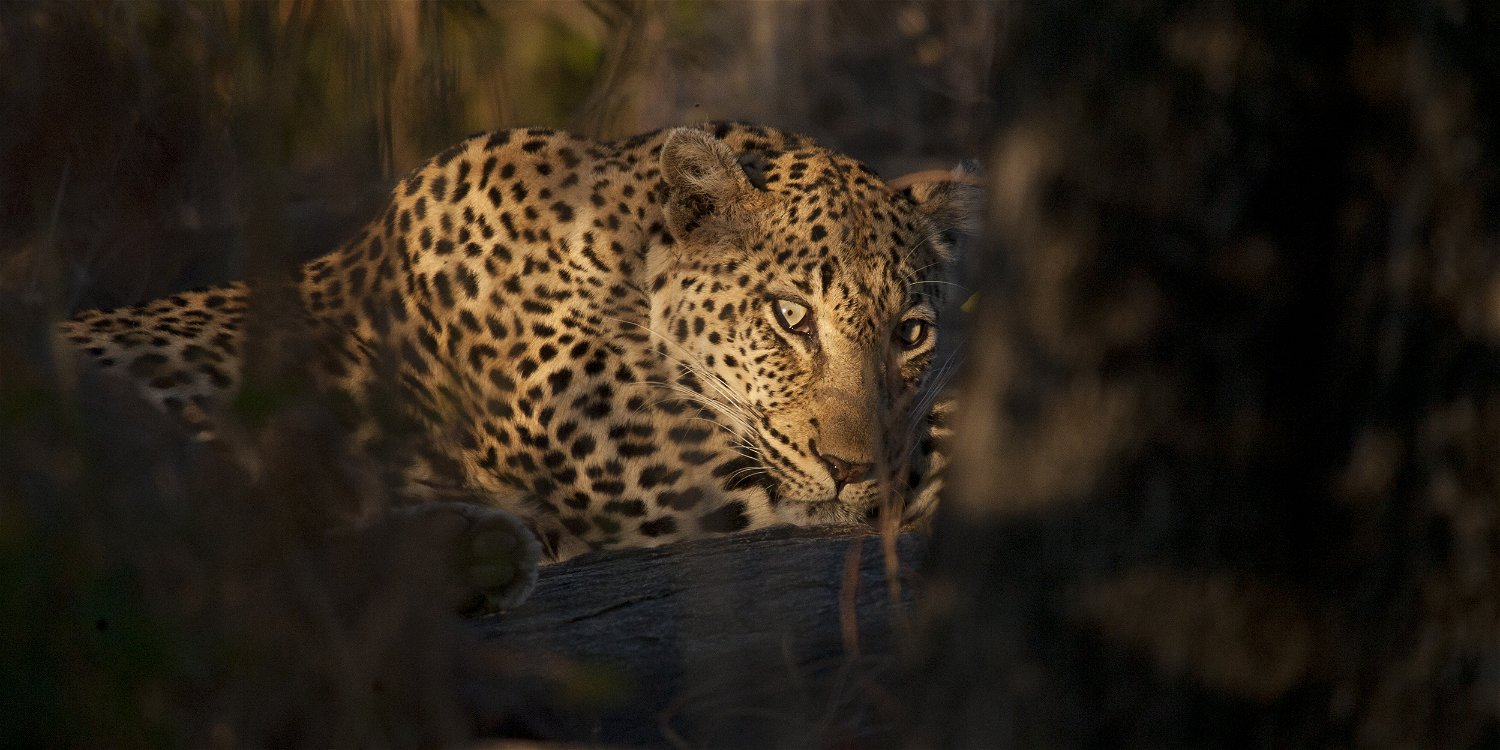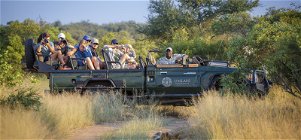Game Ranger Diaries: July 2009 - September 2009
Winter in the lowveld is always a very fascinating time of year. The bush has morphed from its usual lush green terrain to a parched, dusty landscape. The deciduous trees have lost all their leaves standing like skeletons against the blue, cloudless sky. We witnessed numerous pans in the area dry up and leave less and less water for our increasingly desperate animals. The sun would come out and relieve us from the chill of the early mornings only for the temperature to plummet once again at dusk. Ski jackets, beanies, gloves and scarves were a necessity on morning and evening game drives and hot water bottles made for a cozy night’s sleep in the huts. Then almost as soon as winter had come, it went again. In the beginning of September we felt a sudden heat wave that left us sweltering in the heat for a few days before we had a respite of cooler ones again. Temperatures have reached the high 30’s already and the swimming pool has become a refreshing refuge for our guests.
Winter at Umlani Bushcamp
Monkeys, baboons and warthogs around camp are always a sure sign that life has become tough out in the bush. As food became scarce we experienced large volumes of them coming into camp and drinking from the pool or scavenging for any scraps of food left lying around the camp and grazing the small patches of vegetation. Nyala were also frequent guests in camp allowing our human guests fantastic photographic opportunities. Our reptile friends almost all disappeared and a few of our birds took off to a far off land in search of better food and warmth. Our resident herd of buffalo aptly named “dagga boys” felt more relaxed around our camp and made for careful navigation back to the huts after dinner!
The elephants became more impatient and frustrated with one another and their other furry friends as water and food became a rarer resource. One could hear them trumpeting and rumbling at our waterhole. These gray giants need about 140 – 270kg of food and 100 – 250L water everyday so one can understand their aggravation. Marco’s dam was a hot spot for game viewing and we often found herds taking long luxurious mud baths in the middle of the day. This was well received by our guests who had taken a few hours in the tree house overlooking the dam
The tree house at Marco’s dam
The resident Machatan lion pride has continued to base themselves on our property. The three cubs were unfortunately reduced to just two about a month ago. We are not one hundred percent certain how the little guy was killed but we suspect it was a leopard. Elvis bumped into the leopard and the cub in confrontation while their mother was out hunting but pulled out due to the delicate nature of the sighting. The male cub was slightly more curious and brave than his little sisters and we think this is what landed him in trouble. At 6 months old the sisters are growing considerably each month and the mother is allowing them more freedom. We had a lovely sighting of the whole pride last week where one of the males was lying next to a Kudu kill and had eaten so much that he didn’t know what to do with himself. He was rolling around next to his “trophy” groaning and moaning like he was suffering from a stomachache and constantly heaving himself up in an attempt to find a more comfortable position. Despite the fact that his stomach was about to explode, he certainly did not allow any of his family to take a nibble!
Our guests have been exposed to some magnificent game viewing over the winter months. It is always easier to spot game as the bush starts to thin out. We’ve had numerous sightings of five rhinos together, which are known collectively as a crash of rhinos. On an afternoon drive one of our rangers saw a young male leopard with a warthog in a tree carefully trying to balance it over a branch so as not to let it fall to the salivating hyenas below. We’ve recently experienced all three Timbavati male lions walking through our camp at midnight. One can’t begin to describe how moving it is to lie in your hut surrounded by three large roaring male lions. Their roars vibrate through you…it was a very spiritual and poignant experience for all of our guests and staff in camp.
As for camp life, we’ve had all sorts of exciting news on the staffing front. Our head of dining, Joana Mathebula, gave birth to a bubbly baby boy on the 7th September and has named him Hope. She will be back with us in January. Marthe Broadhurst joined us in June as our student. She is currently studying Anglo-Saxon, Norse and Celtic at Cambridge University in England and is helping us with various lodge duties as well as teaching English to the staff. They have thoroughly enjoyed the lessons and having her here. We will definitely miss her when she heads back to Cambridge to start her final year there in October. Thembi Mathebula has been promoted from Head of Housekeeping to Front of House. She has taken on the new position with such pride and determination. Our tracker Moses has been taking game drives more frequently and is proving to be an excellent ranger. Giles and Christie continue in their roles, creating a warm and hospitable atmosphere for guests! We’re excited to get our summer birds and goggas back to a warmer Timbavati.
Intriguing moments:
“Dagga Boys” - 'Dagga' is mud, the word is derived from Zulu mud - udaka n. 11/- (-daka) [u:da:ga] (one of SA's official languages) Dagga boys are kicked out of the herd or leave the herd because they are a danger to the rest of the herd. They will then go and live in a small territory of their own usually close to water where they will wallow and lie in the mud (dagga) for ages. The mud helps them to get rid of the mites and parasites. When the mud gets hard on their skin it traps the parasites and they will then go and rub themselves against a rubbing post (a tree, anthill or a fallen tree) to get rid of them. They usually have very short tempers!
For more, see the Timbavati Nature Reserve blog







Share This Post